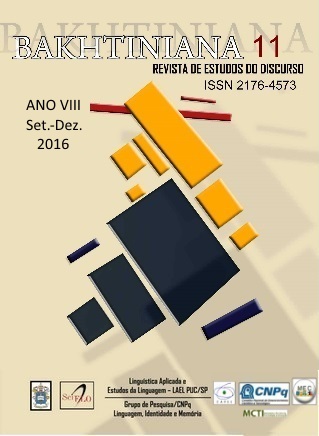Ethics and Aesthetics in the Production of Sense in Early Childhood: A Reflection on the Simultaneity of the Past and Future in the Present
Keywords:
Production of Sense, Early Childhood, Ethics and AestheticsAbstract
In this study, we explored some theoretical assumptions of literary analysis within the context of everyday situations of sense production. This operation was carried out by analyzing longitudinal videotaped sessions of the interactions between a mother and an infant. Concepts related to language, ethics and aesthetics formed the basis for the theoretical assumptions that guided our analysis. A microanalysis of empirical data illustrates the functioning of these assumptions for the production of sense. In the results, we discussed the implications of the simultaneity of past experiences and the anticipation of future possibilities for the organization of the actions in the immediate present. We concluded that the production of sense is a way to solve emerging tensions related to the simultaneity of past and future, originality, individuality, and dynamic stability when responsive situations arise. Therefore, the production of sense was considered an ethical and aesthetic human action, and we were able to verify how appropriate these assumptions were to analyze language practices outside literature.








